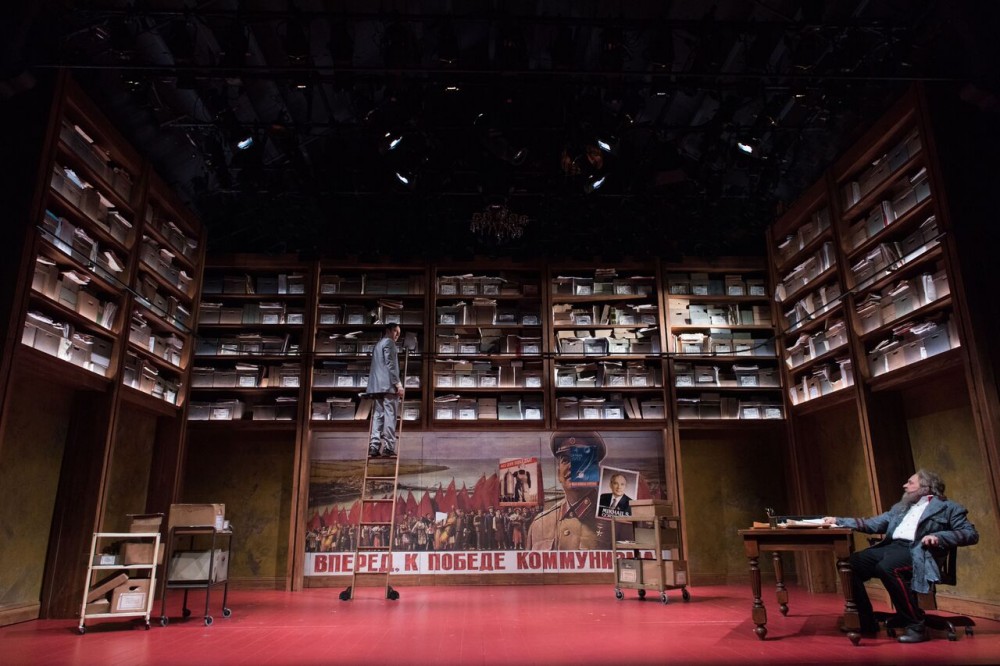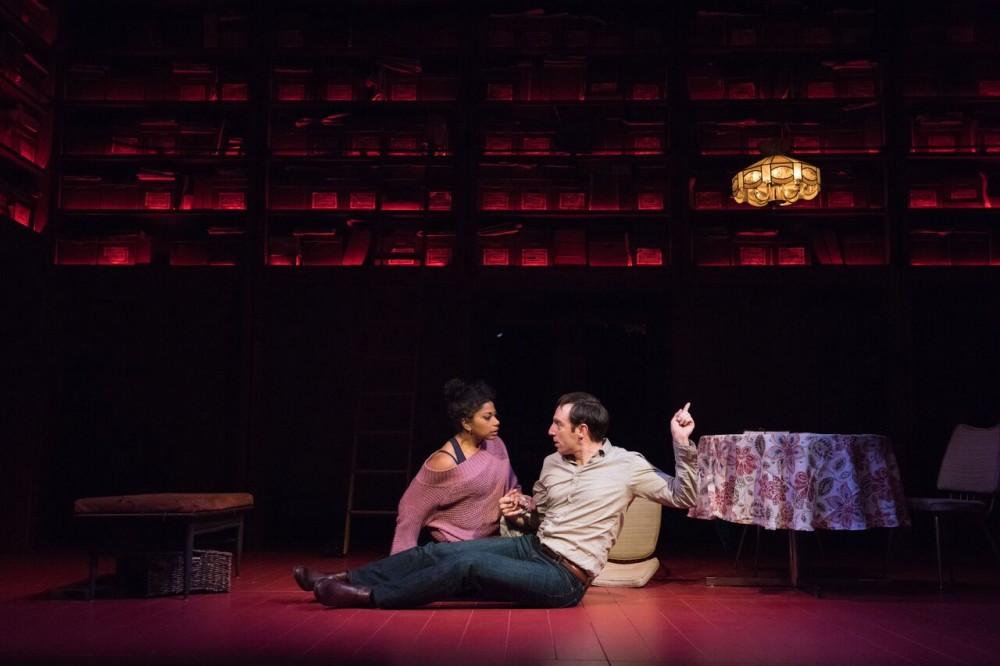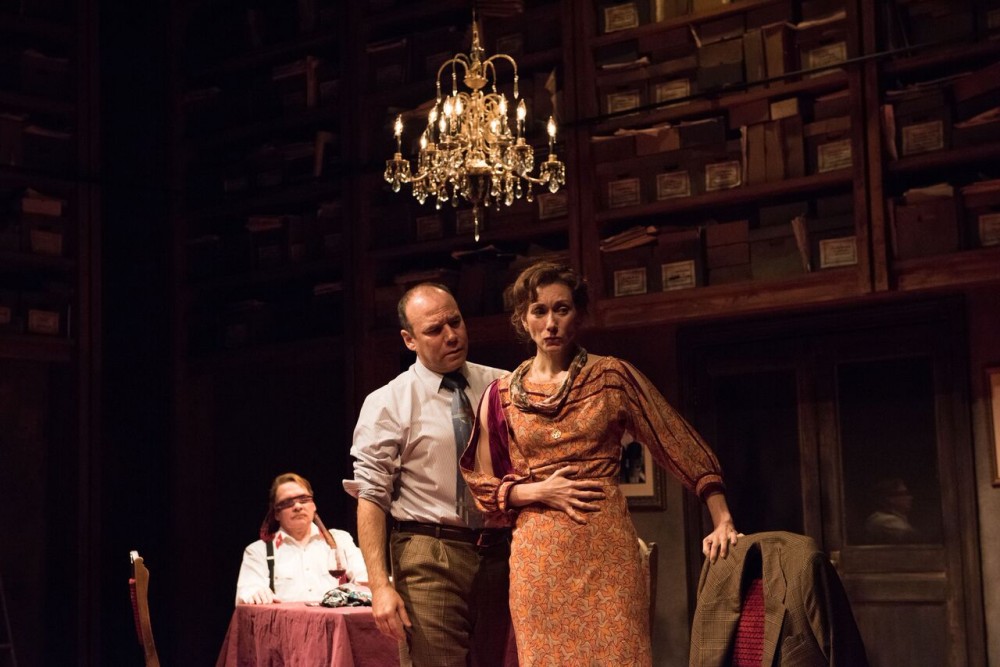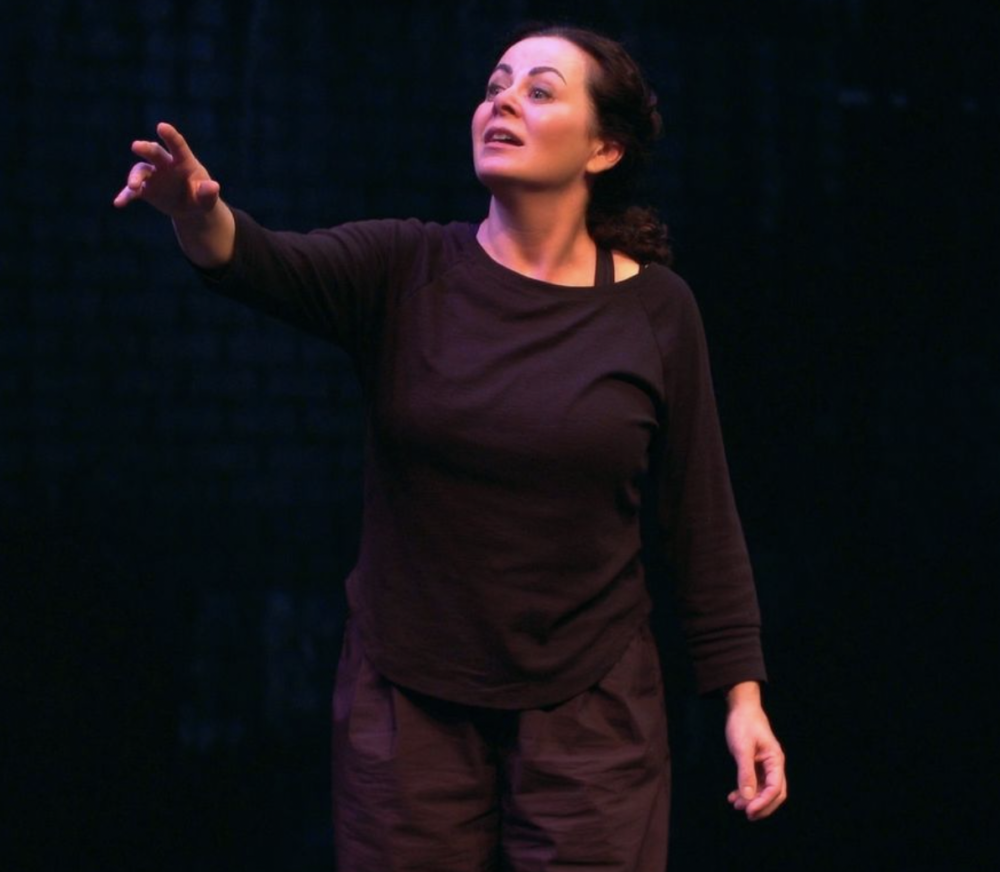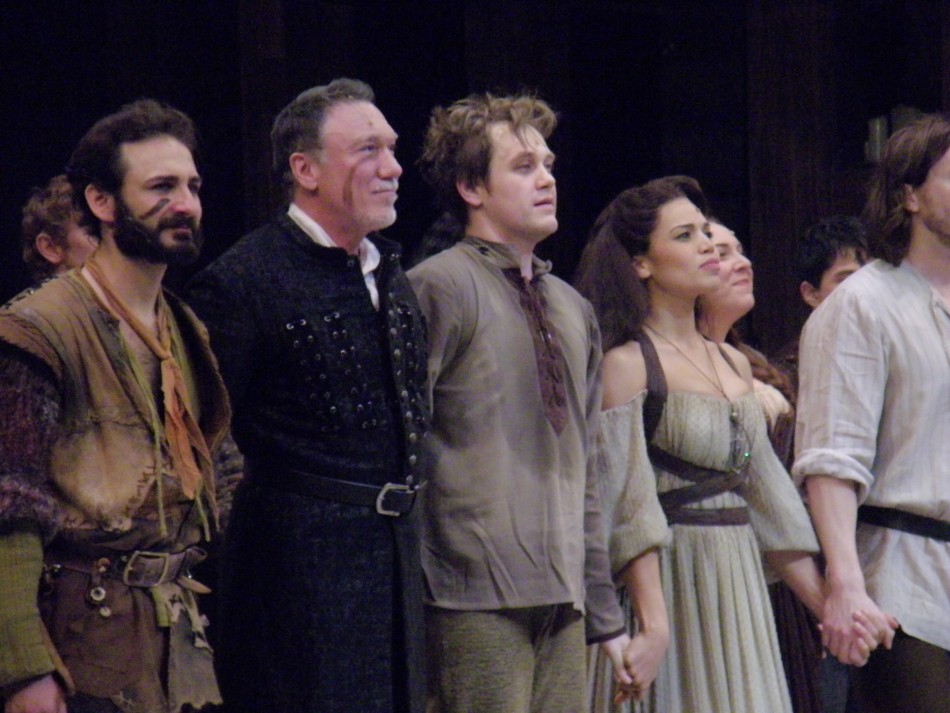by Michael Bracken
First and foremost, there’s the journal. It’s where Describe the Night, at the Atlantic Theater Company’s Linda Gross Theater, begins, it’s where it ends, and it’s pretty much everything in-between. It’s the thread that ties, in varying degrees, the eight characters in Rajiv Joseph’s cryptic, lyrical, engrossing, if occasionally ponderous drama together.
The diary contains writings of Isaac Babel (Danny Burstein), the Russian journalist and author, who in 1920 was working as a wire reporter covering the Russian Red Army in Poland. One of several historical characters in the piece, he is writing in his journal when he is interrupted by Nikolai Yezhov (Zach Grenier), a cavalry officer who will go on to run Stalin’s KGB.
The two men compare Babel’s writing in his journal with his writing for the wire service. For Nikolai, there is no difference between the two. Truth is truth and lies are lies. As time goes on and he climbs up the Communist Party ladder, truth for Nikolai becomes even simpler: it’s what the state says it is. Babel’s view, not so clearly or easily articulated, is more nuanced.
The theme is given a slightly different twist in the next scene, when a Russian reporter, Mariya (Nadia Bowers), is fleeing the scene of the 2010 Polish Air Force crash near Smolensk, Russia. She meets Feliks (Stephen Stocking) when she tries to rent a car. While both are fearful of the authorities, he accepts the official line that the plane went down due to thick fog; she’s more cynical, noting that the entire government of Poland was on the plane. He suggests she go ahead and report her “fake news.”
Hmmm. Where have we heard that before? It’s hard to say Joseph is comparing 2017 USA to 2010 Russia based on two words, but those words are particularly charged. Food for thought, at the very least.
The device of following an item from one owner to the next in a literary work is hardly new. What distinguishes Joseph’s work is his non-linear time line. He jumps from 1920 to 2010, then maneuvers temporally within the boundaries of those years and geographically among Russia, Poland, and East Germany. It can get confusing – he’s not overly generous with clues -but it’s also intriguing. At least his director, Giovanna Sardelli, identifies each scene by year and place through a projection.
Nikolai’s wife, Yevgenia (Tina Benko), has an affair with Isaac and has his child. She eventually lives with her granddaughter, Urzula (Rebecca Naomi Jones) in Dresden. Nikolai asks Vova (Max Gordon Moore), an up and comer in the KGB, to ensure that his granddaughter (actually Isaac’s granddaughter) doesn’t escape to the West but is not imprisoned either. Later in the play, Yevgenia, known for her psychic abilities, predicts that Vova will become the most powerful man in the world.
Tim Mackabee’s set is appropriately stark: for the most part, just a few pieces of furniture that come and go. But there are also voluminous files on shelves starting about eight feet above the floor, with a ladder on wheels to enable access. They’re only relevant to two scenes, when Vova and Nikolai are at Bureau 42 in Moscow, but they’re visible throughout, perhaps to remind us the (Russian?) government keeps tabs on us all.
Sardelli’s direction is straightforward but just a little bit sluggish. Also, her actors at times resort to yelling as an easy way to express emotion when other means would be more interesting.
Burstein and Grenier make perfect foils for each other, as both friends and foes. Benko makes an excellent middle-aged Yevgenia. In old age, she’s funny but just a shade too cute.
Describe the Night effectively summons up the Cold War era in a very character-driven way. It may also bring to mind the adage: The more things change, the more they stay the same.
Photos: Ahron R. Foster
Through Sunday, December 24th at Atlantic Theater Company’s Linda Gross Theater (336 W. 20th Street). atlantictheater.org . 2 hours 40 minutes with one intermission.


